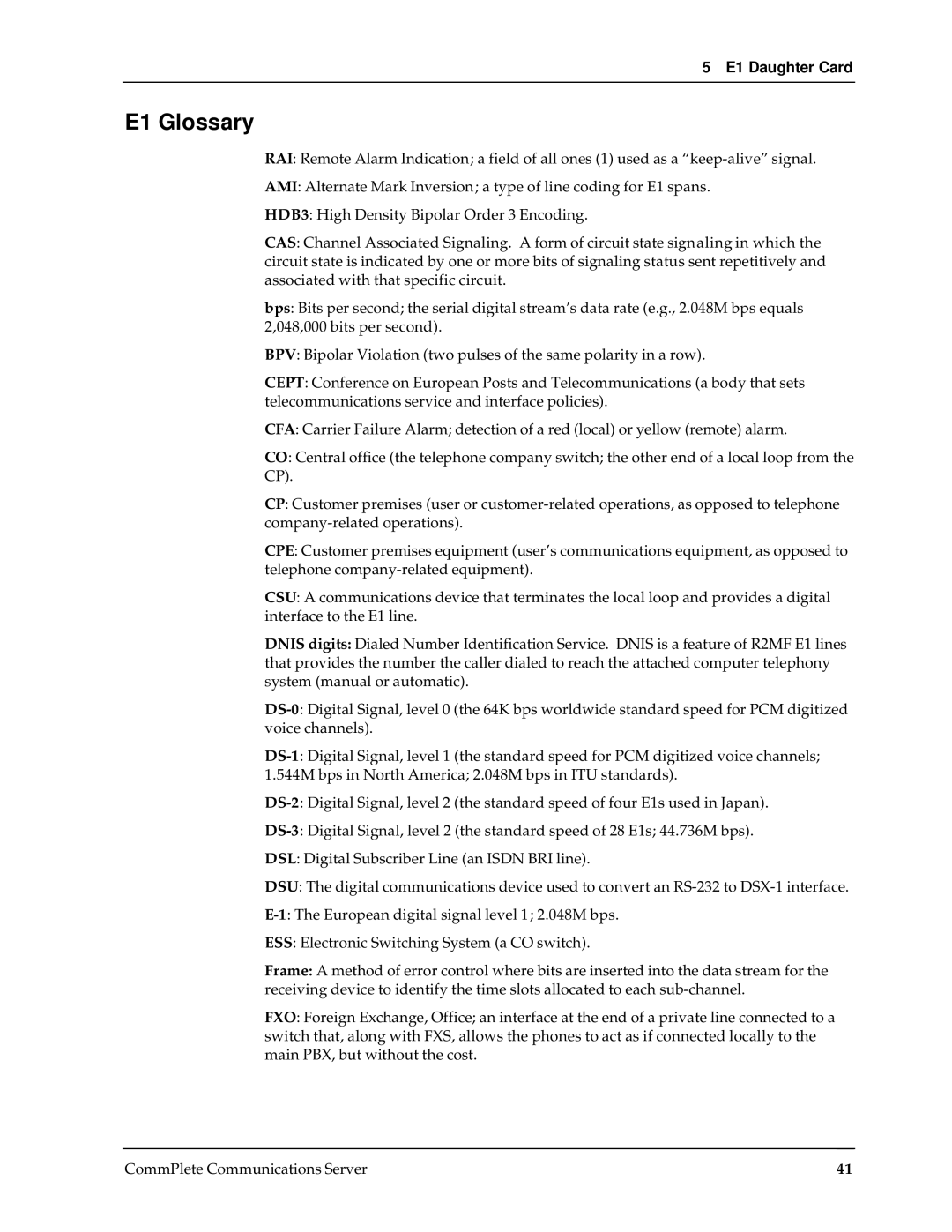
5 E1 Daughter Card
E1 Glossary
RAI: Remote Alarm Indication; a field of all ones (1) used as a
AMI: Alternate Mark Inversion; a type of line coding for E1 spans.
HDB3: High Density Bipolar Order 3 Encoding.
CAS: Channel Associated Signaling. A form of circuit state signaling in which the circuit state is indicated by one or more bits of signaling status sent repetitively and associated with that specific circuit.
bps: Bits per second; the serial digital stream’s data rate (e.g., 2.048M bps equals 2,048,000 bits per second).
BPV: Bipolar Violation (two pulses of the same polarity in a row).
CEPT: Conference on European Posts and Telecommunications (a body that sets telecommunications service and interface policies).
CFA: Carrier Failure Alarm; detection of a red (local) or yellow (remote) alarm.
CO: Central office (the telephone company switch; the other end of a local loop from the CP).
CP: Customer premises (user or
CPE: Customer premises equipment (user’s communications equipment, as opposed to telephone
CSU: A communications device that terminates the local loop and provides a digital interface to the E1 line.
DNIS digits: Dialed Number Identification Service. DNIS is a feature of R2MF E1 lines that provides the number the caller dialed to reach the attached computer telephony system (manual or automatic).
DSL: Digital Subscriber Line (an ISDN BRI line).
DSU: The digital communications device used to convert an
ESS: Electronic Switching System (a CO switch).
Frame: A method of error control where bits are inserted into the data stream for the receiving device to identify the time slots allocated to each
FXO: Foreign Exchange, Office; an interface at the end of a private line connected to a switch that, along with FXS, allows the phones to act as if connected locally to the main PBX, but without the cost.
CommPlete Communications Server | 41 |
